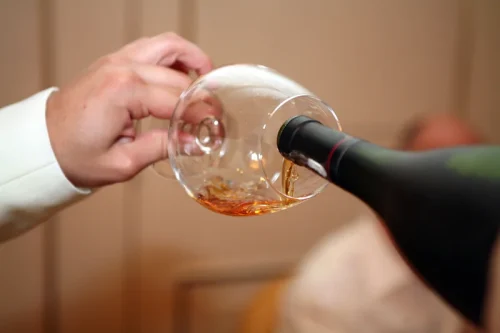
Encouraging them to share their feelings https://ecosoberhouse.com/ and struggles can be a crucial step towards acknowledging the problem. Don’t view your attempt as a failure if your loved one doesn’t acknowledge the problem in your first talk. It often takes repeated conversations, sometimes over months or years, to succeed in your efforts.
Why denial is common for people with AUD
Denial can manifest in different ways, such as minimizing the severity of alcohol use, blaming others for their problems, or avoiding conversations about drinking habits altogether. However, it is essential to recognize that denial is not a conscious choice but how to help an alcoholic in denial a symptom of addiction. Another way to address denial in alcoholism is to allow the alcoholic to suffer the negative consequences of their behaviour.
- Ensure that your loved one is sober and receptive as a conversation attempted during or after drinking may not be productive.
- Some individuals may lie about their drinking habits, while others may dismiss concerns raised by loved ones.
- By combining empathetic understanding and setting healthy boundaries, you can provide a solid foundation for them to seek help and begin their journey to recovery.
- It varies for each individual, but it can take months or even years for an alcoholic to admit they have a drinking problem.
The Role of Education in Alcoholism Awareness

Lying and being dishonest are other ways that the affected person may attempt to conceal and deny the extent of the problem. To truly recover, this person needs to realise that only they have control over their actions. But despite these consequences, the affected person will insist and believe that they do not have a problem. If a woman regularly drinks more than three drinks in one day or heroin addiction more than seven drinks in one week, she is at higher risk of becoming addicted.
- Allowing your loved one to express their thoughts and feelings without interruption can foster openness and reduce defensiveness.
- Orlando Recovery Center offers comprehensive addiction treatment for drug and alcohol addictions and co-occurring mental health conditions.
- When someone reaches a crisis point, sometimes that’s when they finally admit they have a problem and begin to reach out for help.
- False agreements give the appearance that they are willing to address the issue and seek help.
- Reframe supports you in reducing alcohol consumption and enhancing your well-being.
Have an Open Conversation
- You may still want to help your loved one when they are in the middle of a crisis.
- This helpline is answered by Treatment X LLC, an addiction treatment provider with treatment facilities in Ohio, Pennsylvania, and California.
- It is important to acknowledge that you think there may be anunderlying mental health issuethat results in drinking.
- Today, most general practitioners know how to look for alcohol use disorder.
- It is thought that around 50% of people with schizophrenia may also be suffering from anosognosia, preventing them from seeking help or taking their prescribed medication.
When alcoholism and denial go hand in hand, it is very difficult for the addict’s loved ones. The more the alcoholic denies drinking, the more you may doubt yourself, wondering if the alcoholic is indeed consuming too much alcohol. You may wonder how much alcohol is too much and whether or not their behaviors are normal.
Being dismissive can be off-putting for loved ones when they are trying to help you. If a person is in denial with themselves, they may genuinely believe they do not have a problem with alcohol even though it is objectively affecting their life in negative ways. If a person is in denial with others, they may internally acknowledge that they have a negative relationship with alcohol, but when others confront them about their addiction, they deny it.

Not everyone with AUD demonstrates denial, but it’s a common occurrence that can prevent people from seeking treatment. People using denial are unlikely to admit they use alcohol heavily and that their relationship with alcohol is unhealthy. This can be very frustrating for friends and family, but there are ways to make a conversation easier. Secondary denial is a form of denial that doesn’t come from the alcoholic, but from the people they surround themselves with.

Know when to take a step back
Anger and frustration can be tough emotions when supporting someone with AUD. Reminding yourself that you can’t “fix” your loved one — but you can be there for them — can help you cool off, says Elhaj. According to Conroy, it may be easy to get caught in denial with AUD if you subconsciously feel something is wrong with you at your core. It also might mean admitting that they don’t have it all together, and their exterior (and interior) world is crumbling. “In some families, drinking too much is seen as comical, not a big deal, or a must during celebrations,” she adds.